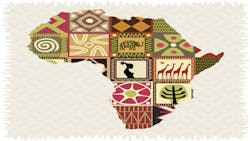ACCRA - Africa remained a relatively strong destination for foreign investors in 2012 despite an 18% drop in foreign direct investment worldwide, a United Nations report said on Wednesday.
Foreign investment to the continent rose 5.5% to $50 billion in 2012, according to the United Nations Conference on Trade and Development's annual World Investment Report.
The percentage increase was however significantly lower than in 2011, which saw a 9% boost over the previous year.
Foreign investment dropped to $1.35 trillion worldwide compared to $1.65 trillion in 2011, with spending hit by continued investor uncertainty over the world economy's recovery since the 2008 financial crisis.
For the first time, the developing world overtook developed countries when it comes to foreign investment, bringing in 52% of foreign investment worldwide.
"Foreign direct investment has contributed to the development of nations in the developing world and will continue to play an important role," Ghana's Deputy Minister of Trade and Industry Nii Lantey Vanderpuije said at the launch of the report in Ghana's capital Accra.
Africa is home to some of the world's fastest growing economies, many of which are new democracies bouncing back from years of war, military rule or economic mismanagement.
The International Monetary Fund announced in April that it expects the continent's economies to grow at 5.6% in 2013, led by rapidly growing economies like Mozambique and Nigeria.
Analysts however warn that such growth has in some cases not equated with significant development and poverty reduction.
Countries like Ghana -- considered a success story in west Africa -- have seen their economies boosted by new discoveries of oil, which buoyed investor interest and helped lead to GDP growth of 7.9% in 2012.
In North Africa, the resurgence of oil-producing Libya brought the region's foreign investment up by 35%.
New mining investments in the Democratic Republic of Congo brought in a large chunk of the $10 billion of foreign investment central Africa received in 2012, a 23% boost from the previous year.
East Africa also saw its investment dollars increase to $6.3 billion last year from $4.6 billion in 2011, thanks to new oil and gas developments in Uganda and Tanzania.
"Africa is the one continent in the report this year that still had increased FDI," said Philip Cobbina, a lecturer at the Ghana Institute of Management and Public Administration, referring to foreign direct investment.
"The increases of FDI flows in Africa was buoyed by the extractive sector."
Other countries did not fare so well.
Nigeria, the continent's most populous nation and largest oil producer, saw its foreign investment dip by 21 percent due to the global economic slowdown and an insurgency by Islamist extremist group Boko Haram concentrated in the country's north.
South Africa lost nearly a quarter of its foreign investment in 2012, with foreign businesses only bringing in $4.6 billion to Africa's largest economy last year.
The report said the drop was "due to net divestments in the last quarter of the year, which was primarily attributed to a foreign mining company offloading its stake in a South African subsidiary."
-Chris Stein, AFP
Copyright Agence France-Presse, 2013
About the Author
Agence France-Presse
Copyright Agence France-Presse, 2002-2025. AFP text, photos, graphics and logos shall not be reproduced, published, broadcast, rewritten for broadcast or publication or redistributed directly or indirectly in any medium. AFP shall not be held liable for any delays, inaccuracies, errors or omissions in any AFP content, or for any actions taken in consequence.
